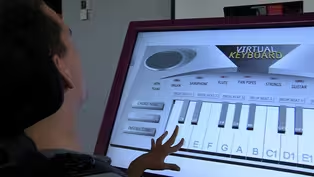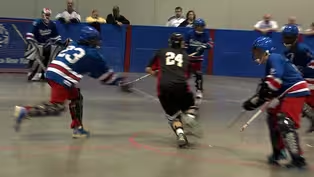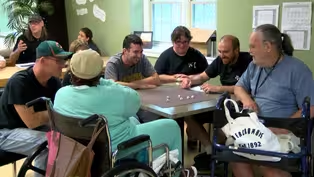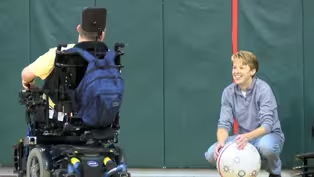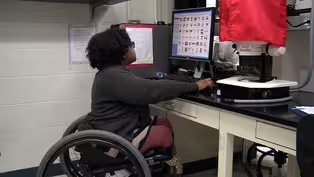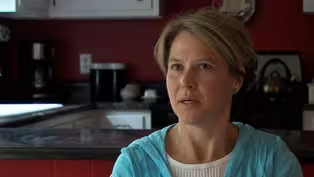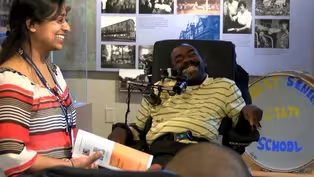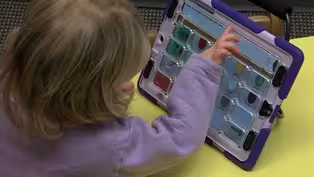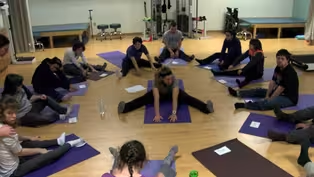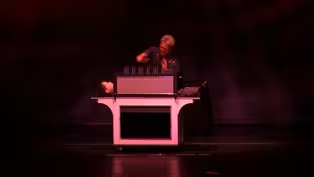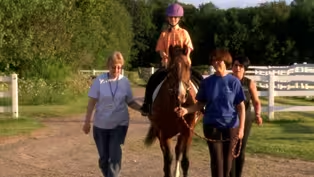Move To Include
Down Syndrome
Special | 2m 40sVideo has Closed Captions
We ask Pat and his family how Down Syndrome has impacted their lives.
Learn about Down Syndrome. We’ll meet Pat and we’ll chat with his family to hear about how Down Syndrome has impacted their lives.
Problems playing video? | Closed Captioning Feedback
Problems playing video? | Closed Captioning Feedback
Move To Include is a local public television program presented by WXXI
Move To Include
Down Syndrome
Special | 2m 40sVideo has Closed Captions
Learn about Down Syndrome. We’ll meet Pat and we’ll chat with his family to hear about how Down Syndrome has impacted their lives.
Problems playing video? | Closed Captioning Feedback
How to Watch Move To Include
Move To Include is available to stream on pbs.org and the free PBS App, available on iPhone, Apple TV, Android TV, Android smartphones, Amazon Fire TV, Amazon Fire Tablet, Roku, Samsung Smart TV, and Vizio.
More from This Collection
Homework Hotline, designed for grades 4 through 12, provides the tools students need to succeed both in and out of the classroom, & supports academic achievement across a variety of learning standards. This collection is specifically curated by Move to Include & presents in-depth stories & profiles of individuals & organizations who are working to make our community inclusive & accessible for all.
Video has Closed Captions
How touch screen technology is making learning more accessible for all students. (2m 58s)
Video has Closed Captions
See how floor hockey is helping these players both in and out of the rink. (2m 16s)
Video has Closed Captions
A program that specializes in working with individuals suffering from traumatic brain injury. (4m 6s)
Video has Closed Captions
Recreational activities through adaptive sports and inclusive recreation. (5m 27s)
Video has Closed Captions
Genomics and how scientists use computers to analyze data. (2m 55s)
Video has Closed Captions
Kerrie Giesen tells us what it is like to have Multiple Sclerosis and how her life has changed. (3m 11s)
Video has Closed Captions
Many people with disabilities were sent to live in institutions away from their families. (2m 28s)
Video has Closed Captions
Charles uses eye gaze technology and a device called a Dynavox to help him communicate. (2m 21s)
Video has Closed Captions
How speech pathologists help children with communicative disorders. (2m 25s)
Video has Closed Captions
Using magic tricks to help therapists provide better care to people with disabilities. (4m 24s)
Video has Closed Captions
Equine assisted therapy. Learn about the benefits of working with horses. (2m 37s)
Providing Support for PBS.org
Learn Moreabout PBS online sponsorshipMy name is Mary ann Schuiler.
I work for CP Rochester.
I am a Bill Taylor and work with disabled people to help them reach their goals in life.
Down Syndrome is a congenital disability that involves an extra chromosome, which is called chromosome 21.
Some of the appearances of Down's Syndrome are a widening of face, a shortness of the person.
They're very happy go lucky people.
They're always trying to make other people happy.
Hey.
I listen.
World class, the teacher.
You a word.
Don't call Professor.
You do that.
I certainly do.
Use of jolly.
How would I describe Patrick?
A great brother.
A lot of fun.
He's always ready to go someplace, loves to be out and about in the community.
Does his bowling, his Zumba, his goannas club loves to go to baseball games and charters concerts, loves his concerts.
And we do probably two or 35k races a year.
And he takes them right from beginning to end.
And is his time has been improving.
I know he does it with myself and his nieces and nephews.
He leaves an impression every place he goes.
Everybody knows that trips.
I know.
And every place you go, everybody knows you.
Yeah.
My name.
Patrick.
Hey.
Hey.
How are you today?
Good.
Hey, how is your right in your mind?
And Patrick is a really nice guy.
He would do anything for you.
He is a comic.
He likes to play practical jokes on you and joke around a lot.
He's fun to have around.
He's a hard worker.
You volunteered to do most everything that you ask him to do.
He's a real good guy.
Things I've learned about people with Down's Syndrome or any other disabilities is they actually can do more than you think they can.
You have to really encourage them to be more independent and they do have the skills to do that.
We're just here to help them improve that.
People with disabilities, I treat them like they're anybody else.
Support for PBS provided by:
Move To Include is a local public television program presented by WXXI
